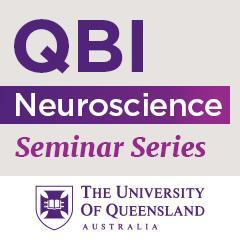International Leaders in Neuroscience Seminar : Professor Marcel Kool, German Cancer Research Center : "Molecular characterization of pediatric brain tumors and preclinical models"
Speaker:
Profesor Marcel Kool
German Cancer Research Center, Division of Pediatric Neurooncology, Heidelberg, Baden-Württemberg, Germany
Title: "Molecular characterization of pediatric brain tumors and preclinical models"
Abstract: Brain tumors remain the leading cause of disease-related death in children. Current treatment regimens that include surgery, radiotherapy and chemotherapy, often lead to severe long-term side effects for those that survive their tumor. To develop new, less toxic, and more targeted treatment strategies, a better understanding of the underlying biology and genetics of pediatric brain tumors, and better diagnostic tools, are needed. DNA methylation profiling has been shown to be a very robust and highly reproducible method to better diagnose and understand the underlying molecular aetiology of brain tumours. We have used DNA methylation profiling to reliably and robustly differentiate 82 distinct molecular subtypes of brain tumors, including subtypes not yet covered in official classifications. In an ongoing world-wide collaborative effort we have generated and fully characterized thus far 130 patient-derived tissues xenografted into mice reflecting 22 distinct molecular subtypes of pediatric brain tumors. These models will provide an unprecedented resource to study tumor biology and pave the way for improving treatment strategies for children with malignant brain tumors.
About Neuroscience Seminars
Neuroscience seminars at the QBI play a major role in the advancement of neuroscience in the Asia-Pacific region. The primary goal of these seminars is to promote excellence in neuroscience through the exchange of ideas, establishing new collaborations and augmenting partnerships already in place.
Seminars in the QBI Auditorium on Level 7 are held on Wednesdays at 12-1pm, which are sometimes simulcast on Zoom (with approval from the speaker). We also occassionally hold seminars from international speakers via Zoom. The days and times of these seminars will vary depending on the time zone of the speaker. Please see each seminar listed below for details.




